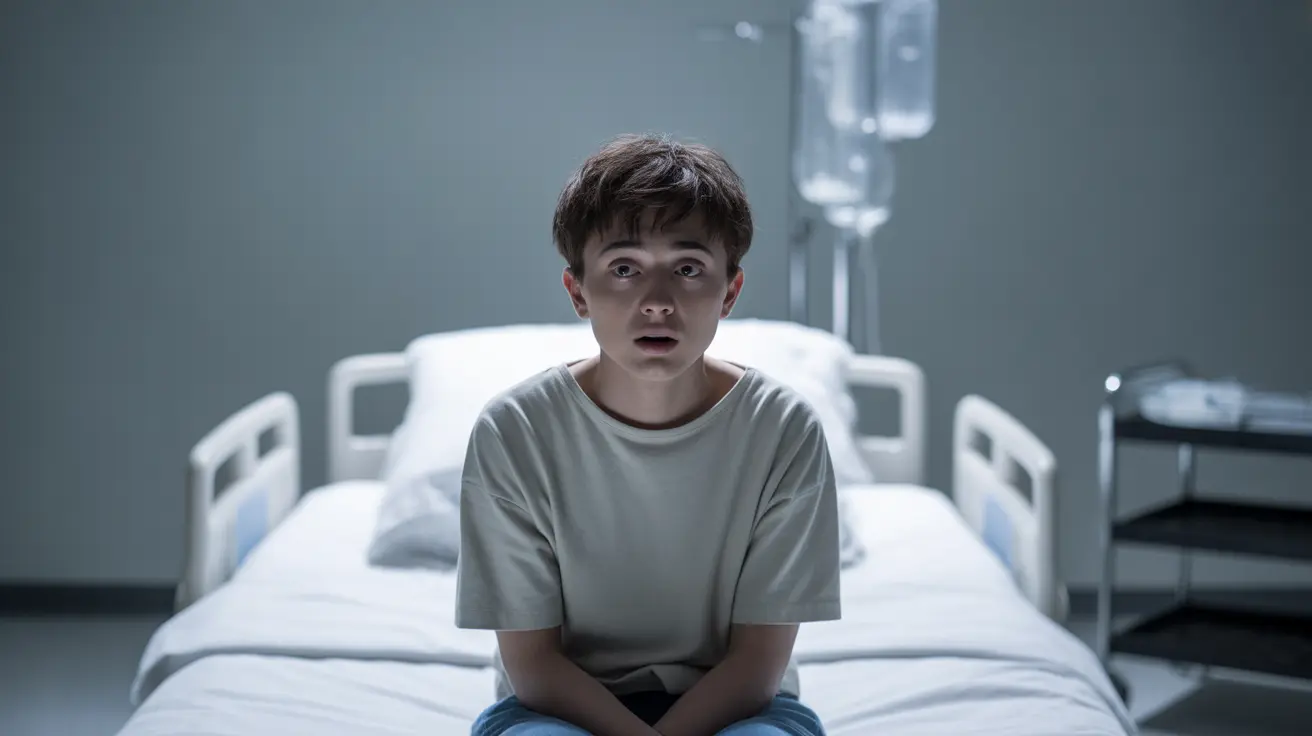Acute schizophrenia represents an intense phase of schizophrenia characterized by severe symptoms that can significantly impact a person's ability to distinguish reality from delusions and hallucinations. Understanding this condition is crucial for both patients and their loved ones, as early recognition and intervention can lead to better outcomes.
This comprehensive guide explores the distinctive features of acute schizophrenia, its treatment options, and essential support strategies that can help manage this challenging mental health condition.
Key Symptoms of Acute Schizophrenia
Acute schizophrenia manifests through several distinctive symptoms that set it apart from other forms of schizophrenia. These symptoms often appear suddenly and with greater intensity:
- Severe positive symptoms (hallucinations and delusions)
- Disorganized speech and behavior
- Intense paranoid thoughts
- Difficulty concentrating or following conversations
- Significant social withdrawal
- Extreme emotional responses
During an acute episode, individuals may experience multiple symptoms simultaneously, making it particularly challenging to maintain daily functions and relationships.
Treatment Approaches for Acute Schizophrenia
Treatment for acute schizophrenia typically involves a multi-faceted approach, combining medical intervention with psychological support:
Medication Management
Antipsychotic medications form the cornerstone of acute schizophrenia treatment. These medications help manage positive symptoms and stabilize the person's mental state:
- Second-generation antipsychotics
- First-generation antipsychotics
- Mood stabilizers when necessary
- Anti-anxiety medications for symptom management
Hospitalization and Intensive Care
During acute episodes, short-term hospitalization may be necessary to ensure safety and establish effective treatment protocols. This provides a structured environment where medication and therapy can be closely monitored.
Triggers and Risk Factors
Several factors can contribute to or trigger acute schizophrenia episodes:
- High levels of stress
- Sleep deprivation
- Substance use or abuse
- Medication non-compliance
- Major life changes or trauma
- Social isolation
Understanding these triggers helps in developing effective prevention strategies and management plans.
Psychosocial Support Systems
Comprehensive support systems play a vital role in managing acute schizophrenia:
Professional Support
- Individual psychotherapy
- Cognitive behavioral therapy (CBT)
- Family therapy sessions
- Social skills training
- Vocational rehabilitation
Community Resources
Community-based support services can provide valuable assistance:
- Support groups for individuals and families
- Crisis intervention services
- Assisted living facilities
- Day treatment programs
- Case management services
Lifestyle Management Strategies
Implementing certain lifestyle changes can help reduce the risk and severity of acute episodes:
- Maintaining regular sleep patterns
- Following a structured daily routine
- Engaging in stress-reduction activities
- Avoiding substance use
- Regular exercise and healthy nutrition
- Building and maintaining social connections
Frequently Asked Questions
What are the symptoms of acute schizophrenia, and how are they different from other forms of schizophrenia?
Acute schizophrenia symptoms are typically more intense and sudden compared to other forms. They include severe hallucinations, delusions, disorganized thinking, and behavior that significantly impairs daily functioning. Unlike chronic schizophrenia, acute episodes may have a more rapid onset and might be more responsive to immediate treatment.
How is acute schizophrenia typically treated, and what are the most effective treatments?
The most effective treatment approach combines antipsychotic medications with intensive psychological support. Treatment often includes hospitalization during acute episodes, followed by ongoing therapy, medication management, and psychosocial support services. Second-generation antipsychotics are frequently prescribed due to their effectiveness and manageable side effects.
Can acute schizophrenia be triggered by certain lifestyle factors, such as stress or substance use?
Yes, acute schizophrenia episodes can be triggered by various factors including high stress levels, substance use, sleep disruption, and major life changes. Identifying and managing these triggers is crucial for preventing acute episodes.
What psychosocial supports are available for managing acute schizophrenia, and how do they help?
Psychosocial supports include individual therapy, family therapy, support groups, vocational rehabilitation, and case management services. These supports help individuals develop coping strategies, maintain medication compliance, improve social skills, and manage daily living activities.
Are there any lifestyle changes or strategies that can help prevent or reduce the severity of acute schizophrenia episodes?
Yes, several lifestyle strategies can help manage acute schizophrenia: maintaining regular sleep patterns, following a structured routine, practicing stress management techniques, avoiding substances, eating a healthy diet, exercising regularly, and staying connected with support systems. These changes can help reduce the frequency and severity of acute episodes.




